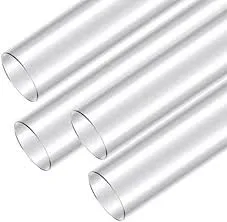Nov . 27, 2024 18:12 Back to list
High-Density Polyethylene Sprinkler Pipe Connectors for Efficient Irrigation Systems
Understanding HDPE Sprinkler Pipe Fittings An Essential Component for Efficient Irrigation
High-Density Polyethylene (HDPE) has emerged as one of the most widely used materials in today's irrigation systems, particularly for sprinkler pipe fittings. As agricultural practices continue to modernize and evolve, the need for durable, reliable, and efficient irrigation systems has become paramount. In this article, we will explore the significance of HDPE sprinkler pipe fittings, their advantages, applications, and considerations for choosing the right fittings for your irrigation needs.
What is HDPE?
High-Density Polyethylene (HDPE) is a thermoplastic polymer known for its high strength-to-density ratio. It's an ideal material for manufacturing various piping systems, including those used in agricultural irrigation. HDPE is resistant to a wide range of chemicals, making it suitable for diverse environments. Its resistance to environmental stress and uv radiation ensures durability, making it an optimal choice for outdoor applications.
Why Use HDPE Sprinkler Pipe Fittings?
1. Durability HDPE fittings are designed to withstand harsh environmental conditions, including extreme temperatures and UV exposure. This durability translates to reduced maintenance and a longer lifespan for the irrigation system.
2. Flexibility HDPE is flexible yet robust, allowing for easy installation and customization of sprinkler systems. This adaptability makes it easier to navigate around obstacles and modify layouts as needed.
3. Corrosion Resistance Unlike metal fittings, HDPE does not rust or corrode over time. This property intensifies the longevity of the irrigation system, ensuring consistent water flow without the risk of contamination.
4. Efficiency The smooth interior surface of HDPE fittings minimizes friction losses, enhancing the efficiency of water flow. This promotes optimal distribution of water, leading to better crop yield and healthier plants.
5. Environmentally Friendly HDPE is a recyclable material, making it suitable for environmentally conscious farmers and landscaping professionals. The use of HDPE helps reduce the carbon footprint associated with irrigation practices.
Applications of HDPE Sprinkler Pipe Fittings
HDPE sprinkler pipe fittings are versatile and can be utilized in various applications
hdpe sprinkler pipe fittings

- Agriculture Widely used in farms for irrigation systems, HDPE fittings facilitate efficient water distribution, enhancing crop productivity.
- Commercial Landscaping Landscapers utilize HDPE fittings for commercial lawn and garden projects, ensuring that plants receive consistent hydration
.- Residential Irrigation Homeowners also benefit from HDPE fittings in residential sprinkler systems, providing an effective solution for maintaining green spaces.
Selecting the Right HDPE Fittings
When choosing HDPE sprinkler pipe fittings, several factors should be considered
1. Size and Compatibility Ensure that the fittings are compatible with the size and type of your existing piping system. Using the correct size is crucial to maintaining optimal water flow.
2. Pressure Ratings Different applications may require fittings that can withstand varying levels of pressure. It’s essential to select fittings that meet or exceed the pressure requirements of your irrigation system.
3. Type of Connection HDPE fittings come in various connection types, including butt fusion, electrofusion, and mechanical connections. Choosing the right connection method depends on your project requirements and installation capabilities.
4. Application Environment Consider the specific environmental conditions where the fittings will be installed. For example, if the system will be exposed to high UV levels, ensure that the fittings are UV resistant.
5. Supplier Reputation Finally, source your HDPE fittings from reputable suppliers who guarantee quality and support. Quality fittings are crucial for the success and reliability of your irrigation system.
Conclusion
HDPE sprinkler pipe fittings represent a vital component in the evolution of irrigation systems. Their durability, flexibility, and efficiency make them an ideal choice for a range of applications, from large-scale agricultural setups to residential gardens. By understanding the advantages of HDPE and carefully selecting the appropriate fittings, users can significantly enhance the efficacy and longevity of their irrigation systems. With the continued advancement of agricultural technology, the role of HDPE in efficient water management will only strengthen, leading to more sustainable farming practices.
-
High-Quality PPR Pipes and Fittings Durable ERA PPR & PVC PPR Solutions
NewsJul.08,2025
-
Black HDPE Cutting Board - Durable, Non-Porous & Food Safe HDPE Plastic Cutting Board
NewsJul.08,2025
-
High-Quality CPVC Panel Durable HDPE & PVC Panels Supplier
NewsJul.08,2025
-
Double PE Welding Rod Supplier - High Strength, Durable & Versatile Welding Solutions
NewsJul.07,2025
-
High-Quality PVC-O Pipe Supplier Durable 75mm PVC Pipe & Connections Leading PVC Pipe Company
NewsJul.07,2025
-
HDPE Drainage Pipe Supplier – Durable & Corrosion-Resistant Solutions
NewsJul.06,2025

